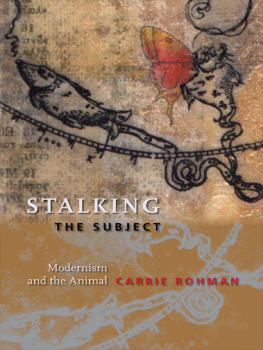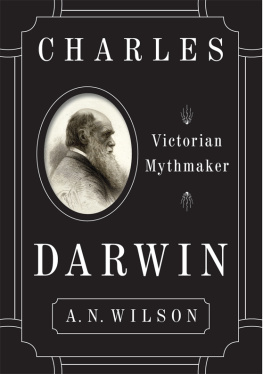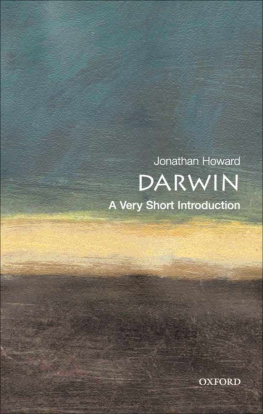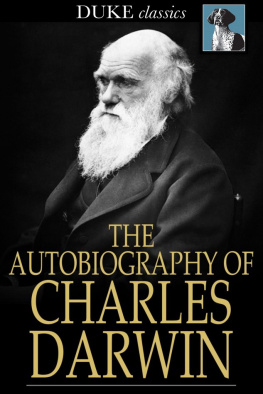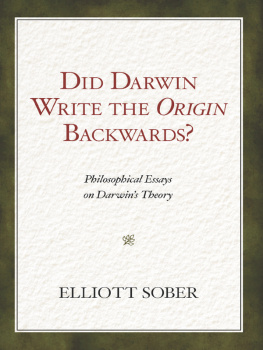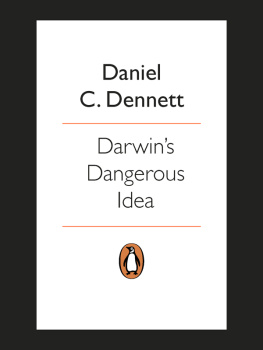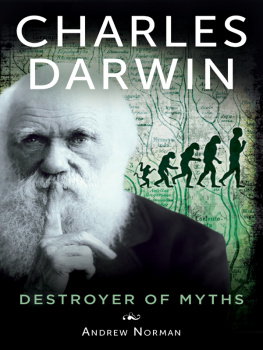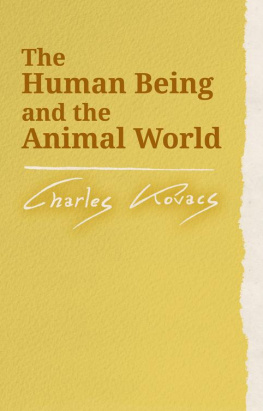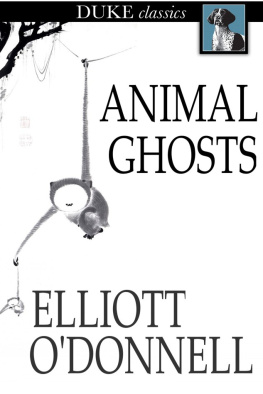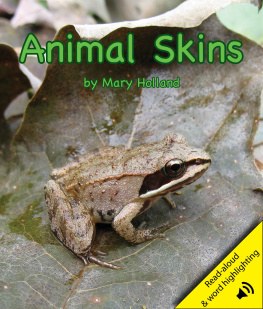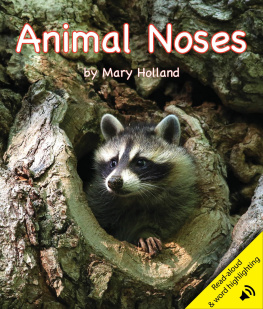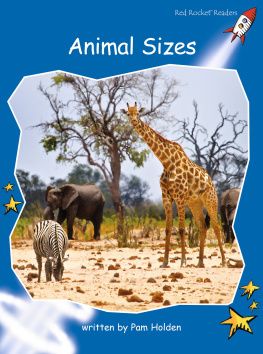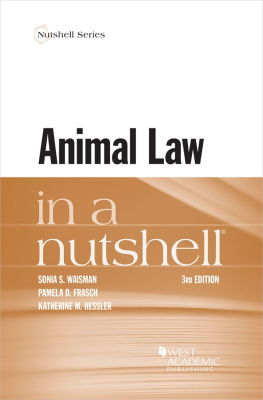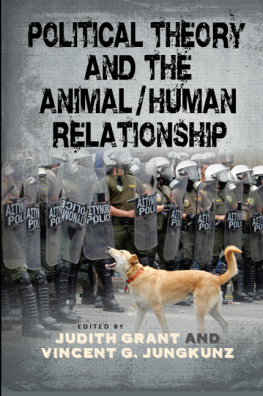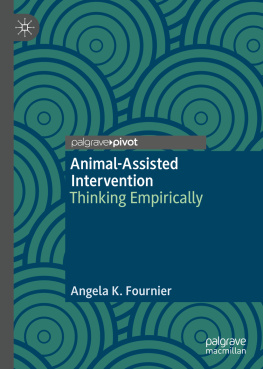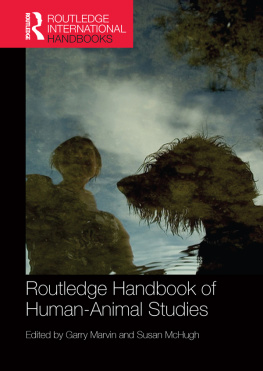STALKING THE SUBJECT
STALKING THE SUBJECT
Modernism and the Animal
Carrie Rohman
Columbia University Press New York
Columbia University Press
Publishers Since 1893
New York Chichester, West Sussex
cup.columbia.edu
Copyright 2009 Columbia University Press
All rights reserved
E-ISBN 978-0-231-51856-7
Library of Congress Cataloging-in-Publication Data
Rohman, Carrie.
Stalking the subject : modernism and the animal / Carrie Rohman.
p. cm.
Includes bibliographical references and index.
ISBN 978-0-231-14506-0 (cloth : alk. paper)
ISBN 978-0-231-14507-7 (pbk.)
1. English literature19th centuryHistory and criticism.
2. English literature20th centuryHistory and criticism.
3. Animals in literature. 4. Modernism (Literature)Great Britain.
5. Human-animal relationships in literature. 6. AnimalsSymbolic aspects. 7. Darwin, Charles, 18091882Influence.
8. Freud, Sigmund, 18561939Influence. 9. Evolution (Biology) in literature. 10. Ethics in literature. I. Title.
PR468.A56R64 2009
820.9362dc22
2008004864
A Columbia University Press E-book.
CUP would be pleased to hear about your reading experience with this e-book at .
For my mother and late father,
and for Dale Gilmore
The gaze called animal offers to my sight the abyssal limit of the human: the in human or the ahuman, the ends of man, that is to say the bordercrossing from which vantage man dares to announce himself to himself. And in these moments of nakedness, under the gaze of the animal, everything can happen to me, I am like a child ready for the apocalypse, I am (following) the apocalypse itself, that is to say the ultimate and first event of the end, the unveiling and the verdict.
Jacques Derrida, The Animal That Therefore I Am (More to Follow)
Contents
This book represents a sustained commitment to thinking and writing over several years during which I received invaluable support from others. First, the book would not have been possible without the unwavering patience, wisdom, and encouragement of my mentor, Cary Wolfe, who did not leave me to twist in the wind. His intellectual generosity, his friendship, and his belief in this project are gifts for which I remain humbled and deeply grateful.
I wish to acknowledge the institutional support of the University of Pittsburgh at Johnstown in their funding of several research activities at which I received important feedback for the completion of this project. This is especially true of my fellowship at the 2005 School of Criticism and Theory at Cornell University, where I was privileged to study with Elizabeth Grosz. I am very grateful for her reading of parts of this book, for her recognition of its value, and for her entreaty to keep working.
For the sometimes intangible but nonetheless essential support that academics need in their personal and professional lives, in their thinking and creating, I owe a debt of gratitude to a number of friends and colleagues. For their immeasurable role in this particular journey, I offer my thanks to Karen Carcia, Catherine S. Cox, Kristin Czarnecki, Kristin Lyndal Garbarino, Alessandra Lynch, David Magill, Tresa McVicker, Christine OConnor, Maria-Cristina Saavedra, and, especially, Bryn Weller. My profound thanks to my mother, Sandy Rohman, for her truly unconditional love, to my brothers, Lance, Grant, and Clayton Rohman, and to my beloved late father, Dan Rohman, all of whom I am honored to call family. Thanks to Dale Gilmore for his early example of living deliberately and thinking expansively; he continues to inspire. And finally, for my husband, Ernie Cascino, whose love and devotion are astonishingmy deepest and most joyful thanks.
I wish to gratefully acknowledge permission from the following publications to reproduce my work and from the following institutions to reproduce the work of T. S. Eliot and D. H. Lawrence:
A segment of (on The Plumed Serpent) originally appeared in D. H. Lawrence: New Worlds, ed. Keith Cushman and Earl G. Ingersoll (Fairleigh Dickinson University Press, 2003).
A portion of (on The Island of Dr. Moreau) originally appeared in Figuring Animals: Essays on Animal Images in Art, Literature, Philosophy, and Popular Culture, ed. Mary Sanders Pollock and Catherine Rainwater (Palgrave Macmillan, 2005).
originally appeared as Revising the Human: Silence, Being, and the Question of the Animal in Nightwood in American Literature 79, no. 1 (March 2007): 5784. Used with permission of the publisher, Duke University Press.
Snake by D. H. Lawrence, Fish by D. H. Lawrence, from The Complete Poems of D. H. Lawrence by D. H. Lawrence, ed. V. Sola Pinto and F. W. Roberts, copyright 1964, 1971 by Angelo Ravagli and C. M. Weekley, Executors of the Estate of Frieda Lawrence Ravagli. Used by permission of Viking Penguin, a division of Penguin Group (USA) Inc.
Burbank with a Baideker by T. S. Eliot, Sweeney Agonistes by T. S. Eliot, Sweeney Among the Nightingales by T. S. Eliot, Sweeney Erect by T. S. Eliot, from Collected Poems 19091962 by T. S. Eliot, copyright 1963, Harcourt, Inc. and Faber & Faber Ltd.
The task for the critic who wishes to restore the materiality of a world outside of consciousness to criticism is to find a means of addressing lautre without reducing it to autrui: it is to find a means of thinking alterity, of constructing a critical philosophy which will eschew the solace of identityalways predictablein the interests of an alterity for which the subject is precisely unprepared.
Thomas Docherty, Alterities: Criticism, History, Representation
Animal Studies and the Question of Methodologies
Literary studies and critical theory are witnessing the development of a new discipline surrounding the cultural and discursive significance of animality and its relationship to Western metaphysics and humanist discourses. Whether this discipline becomes known as critical animal studies, or the simpler animal studies, the contours of the field are taking shape across broad fields of inquiry. From the strictly philosophical to the historical, cultural, and literary, the past five years have brought about an unprecedented amount of scholarly work on the place, meaning, and ethical status of animals in relation to our signifying practices. For those in modernist studies, the animal problem takes on a particularly charged valence since modernism comes on the heels of Darwins catastrophic blow to human privilege vis--vis the species question. Id like to begin by looking at the impact of Darwinism (and Freudianism) and the role of historicist work on animals during that period. This view will open onto my detailed discussion of the need for a theoretically sophisticated critical apparatus in work on animality in the humanities and my subsequent framing of the question of animal subjectivity in literary and cultural modernism.
What is uncontested about the historical relevance of Darwins work is that its appearance signified one of the great ideological pivot points in the modern era. Darwins work is often yoked with Freuds and Marxs to demonstrate the tripartite nature of the massive ideological shifts that took place in the modern age. Noel Annan puts it bluntly that Darwins The Origin of Species became the foundation of a new history of the world. Darwins work had scientists, theologians, politicians, and eventually the average European rethinking the most elementary contours of human identity and the human connection to other sentient life.

